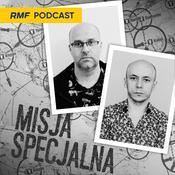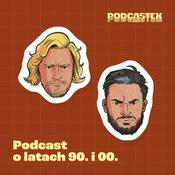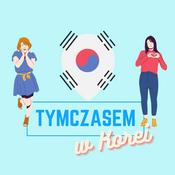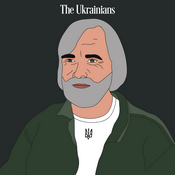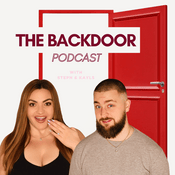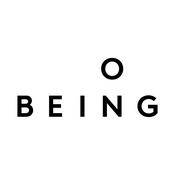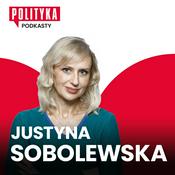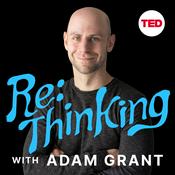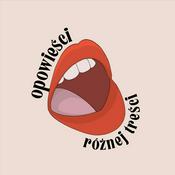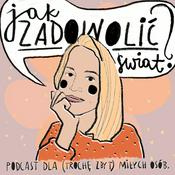100 odcinków

The Future of Wellbeing in an Automated World
24.05.2022 | 43 min.
This season of Better Life Lab, we’ve been taking a close look at work stress and the future of work and wellbeing. Parts of the American economy are looking tough for many workers — even “dystopian. People are quitting their jobs at record rates.We know what many of the problems are. Yet the fixes are not so simple. So on this closing episode of our fourth season, we ask: Are bad jobs an inherent part of the workplace — or can we actually do what it takes to make the jobs of the future good jobs, big enough to support real human life for all of us?GuestsRep. Jim Himes, D-Ct, chair of the House Select Committee on Economic Disparity and Fairness in GrowthZeynep Ton, founder, Good Jobs InstituteWarren Valdmanis, private equity investor and partner with Two Sigma Impact, who will only invest in companies that provide good jobsResourcesWhat if Progress meant Wellbeing for All?, The Metropolitan GroupMaking wellbeing a policy priority. Lessons from the 2021 World Happiness Report, Carol Graham, Brookings, 2021The Business Roundtable Redefines the Purpose of a Corporation to Promote an Economy that Serves All, 2019Hearing Recap: Our Changing Economy: The Effects of Technological Innovation, Automation and the Future of Work, House Select Committee on Economic Disparity and Fairness in Growth, Nov. 2021Economists pin more blame on tech for inequality, New York Times, January 2022 Hosted on Acast. See acast.com/privacy for more information.

The Future of Wellbeing in an Automated World
24.05.2022 | 46 min.
This season of Better Life Lab, we’ve been taking a close look at work stress and the future of work and wellbeing. Parts of the American economy are looking tough for many workers — even “dystopian. People are quitting their jobs at record rates. We know what many of the problems are. Yet the fixes are not so simple. So on this closing episode of our fourth season, we ask: Are bad jobs an inherent part of the workplace — or can we actually do what it takes to make the jobs of the future good jobs, big enough to support real human life for all of us? Guests Rep. Jim Himes, D-Ct, chair of the House Select Committee on Economic Disparity and Fairness in Growth Zeynep Ton, founder, Good Jobs Institute Warren Valdmanis, private equity investor and partner with Two Sigma Impact, who will only invest in companies that provide good jobs Resources What if Progress meant Wellbeing for All?, The Metropolitan Group Making wellbeing a policy priority. Lessons from the 2021 World Happiness Report, Carol Graham, Brookings, 2021 The Business Roundtable Redefines the Purpose of a Corporation to Promote an Economy that Serves All, 2019 Hearing Recap: Our Changing Economy: The Effects of Technological Innovation, Automation and the Future of Work, House Select Committee on Economic Disparity and Fairness in Growth, Nov. 2021 Economists pin more blame on tech for inequality, New York Times, January 2022

The New Unemployment
17.05.2022 | 33 min.
Being unemployed in the United States is bad for you. It’s bad for your mental, physical and emotional health. Bad for your family stability. Bad for your ability to survive. It’s just bad news, period.The research shows that 83 percent of laid-off workers develop a serious stress-related condition. And as we look at the future of work, that’s a problem for the American economy. Because one of the big questions about the American workplace is:What if, in the a future, we actually have less work … and more unemployment?GuestsKiarica Shields, hospice nurse in Georgia who lost her job early in the pandemic, and eventually lost her home and her car. Her unemployment insurance stopped inexplicably, and after she her appeal, she was told she was ineligible for coverage because she worked a single day on another job. Mark Attico - furloughed at the start of the pandemic in his job planning business travel. Was on unemployment for months, and with the pandemic supplement his income was actually enough to pay his bills, and gave him time to reconnect with his teenage son - and hold out for a better job that fit his skills and paid well.Dorian Warren, co-president of Community Change.Sarah Damaske, author of The Tolls of Uncertainty: How Privilege and the Guilt Gap Shape Unemployment in America.ResourcesReforming Unemployment Insurance: Stabilizing a system in crisis and laying the foundation for equity, A joint project of Center for American Progress, Center for Popular Democracy, Economic Policy Institute, Groundwork Collaborative, National Employment Law Project, National Women’s Law Center, and Washington Center for Equitable Growth, June, 2021A Playbook for Improving Unemployment Insurance Delivery, New America New Practice Lab, 2021A Plan to Reform the Unemployment Insurance System in the United States, Arindrajit Dube, The Hamilton Project, April 2021 How Does Employment, or Unemployment, Affect Health, RWJF, 2013 Single transitions and persistence of unemployment are associated with poor health outcomes, Herber et al, 2019The Toll of job loss, Stephanie Pappas, American Psychological Association, 2020 Hosted on Acast. See acast.com/privacy for more information.

The New Unemployment
17.05.2022 | 36 min.
Being unemployed in the United States is bad for you. It’s bad for your mental, physical and emotional health. Bad for your family stability. Bad for your ability to survive. It’s just bad news, period. The research shows that 83 percent of laid-off workers develop a serious stress-related condition. And as we look at the future of work, that’s a problem for the American economy. Because one of the big questions about the American workplace is:What if, in the a future, we actually have less work … and more unemployment? Guests Kiarica Shields, hospice nurse in Georgia who lost her job early in the pandemic, and eventually lost her home and her car. Her unemployment insurance stopped inexplicably, and after she her appeal, she was told she was ineligible for coverage because she worked a single day on another job. Mark Attico - furloughed at the start of the pandemic in his job planning business travel. Was on unemployment for months, and with the pandemic supplement his income was actually enough to pay his bills, and gave him time to reconnect with his teenage son - and hold out for a better job that fit his skills and paid well. Dorian Warren, co-president of Community Change. Sarah Damaske, author of The Tolls of Uncertainty: How Privilege and the Guilt Gap Shape Unemployment in America. Resources Reforming Unemployment Insurance: Stabilizing a system in crisis and laying the foundation for equity, A joint project of Center for American Progress, Center for Popular Democracy, Economic Policy Institute, Groundwork Collaborative, National Employment Law Project, National Women’s Law Center, and Washington Center for Equitable Growth, June, 2021 A Playbook for Improving Unemployment Insurance Delivery, New America New Practice Lab, 2021 A Plan to Reform the Unemployment Insurance System in the United States, Arindrajit Dube, The Hamilton Project, April 2021 How Does Employment, or Unemployment, Affect Health, RWJF, 2013 Single transitions and persistence of unemployment are associated with poor health outcomes, Herber et al, 2019 The Toll of job loss, Stephanie Pappas, American Psychological Association, 2020

Is America Ready for a Guaranteed Basic Income?
10.05.2022 | 36 min.
Michael Tubbs grew up in poverty. And when, at 26, he was elected mayor of his hometown, he decided to do something about it. And what he did in Stockton, California, no American mayor had done before. He started giving poor people cash. No strings attached. Stockton’s pilot program in Guaranteed Basic Income started lifting people out of poverty. It gave parents more time with their kids. And it was actually cost-effective. So as we look to the Future of Work and Wellbeing, could Guaranteed Basic Income programs play a central role in lifting all of us up — and boosting the standard of life for all Americans? Guests Michael Tubbs, elected mayor of Stockton, California in 2016 at the age of 26 — the youngest mayor in the country. He is known nationally for establishing the first city-led Guaranteed Basic Income program in America, which has inspired dozens of other cities across the country to try similar programs. Having lost his re-election bid in 2020, Tubbs recently founded the nonprofit End Poverty in California. Natalie Foster, co-founder, co-director Economic Security Project, which worked closely with Tubbs on Stockton’s Guaranteed Basic Income program John Summers, participant in pilot guaranteed basic income program Cambridge RISE in Massachusetts. Resources Stockton’s Basic Income Experiment Paid Off, Annie Lowrey, The Atlantic The Potential for a Guaranteed Income: A Conversation with Four Mayors, New America California, 2021. The Future of Leisure, Stuart Whatley, Democracy Journal, 2012 The Evolving Concept of Time for Work, Leisure, Pew Research, 2008 Less Work and More Leisure: Utopian Visions and the Future of Work, CBC Radio, 2018
Więcej Społeczeństwo i Kultura podcastów
Trendy w podcaście Społeczeństwo i Kultura
O Better Life Lab
Słuchaj Better Life Lab, Heweliusz. Prawdziwa historia i wielu innych podcastów z całego świata dzięki aplikacji radio.pl

Uzyskaj bezpłatną aplikację radio.pl
- Stacje i podcasty do zakładek
- Strumieniuj przez Wi-Fi lub Bluetooth
- Obsługuje Carplay & Android Auto
- Jeszcze więcej funkcjonalności
Uzyskaj bezpłatną aplikację radio.pl
- Stacje i podcasty do zakładek
- Strumieniuj przez Wi-Fi lub Bluetooth
- Obsługuje Carplay & Android Auto
- Jeszcze więcej funkcjonalności


Better Life Lab
pobierz aplikację,
zacznij słuchać.






